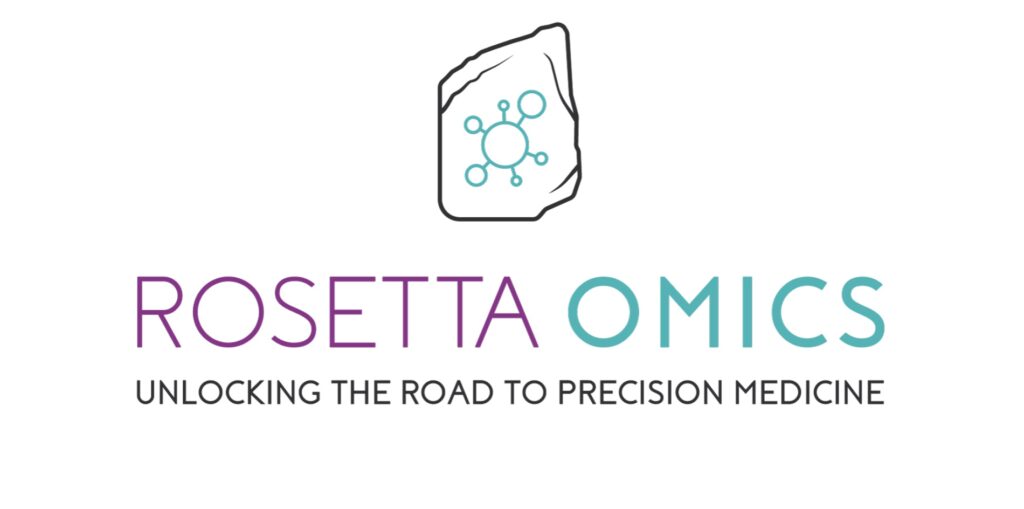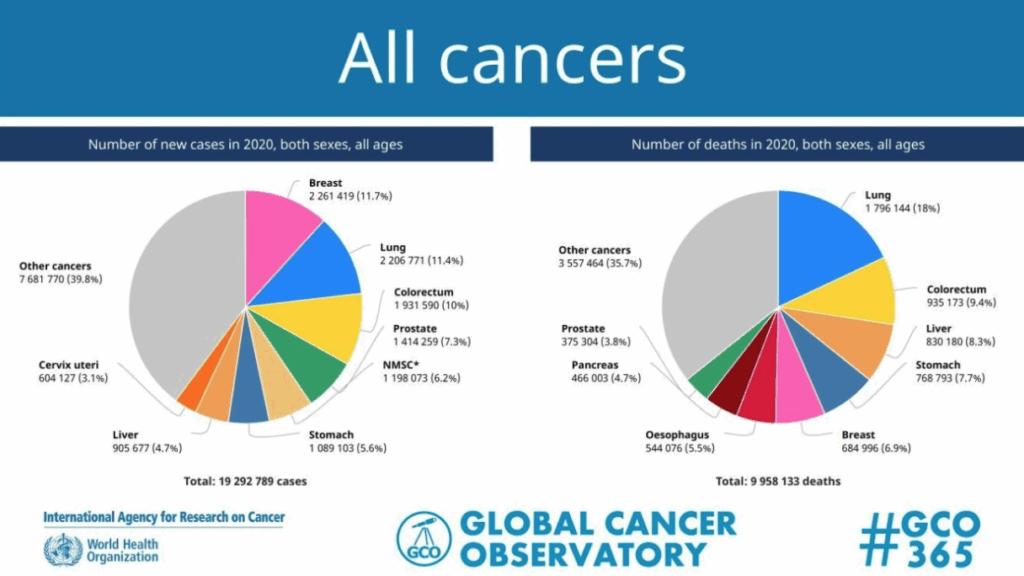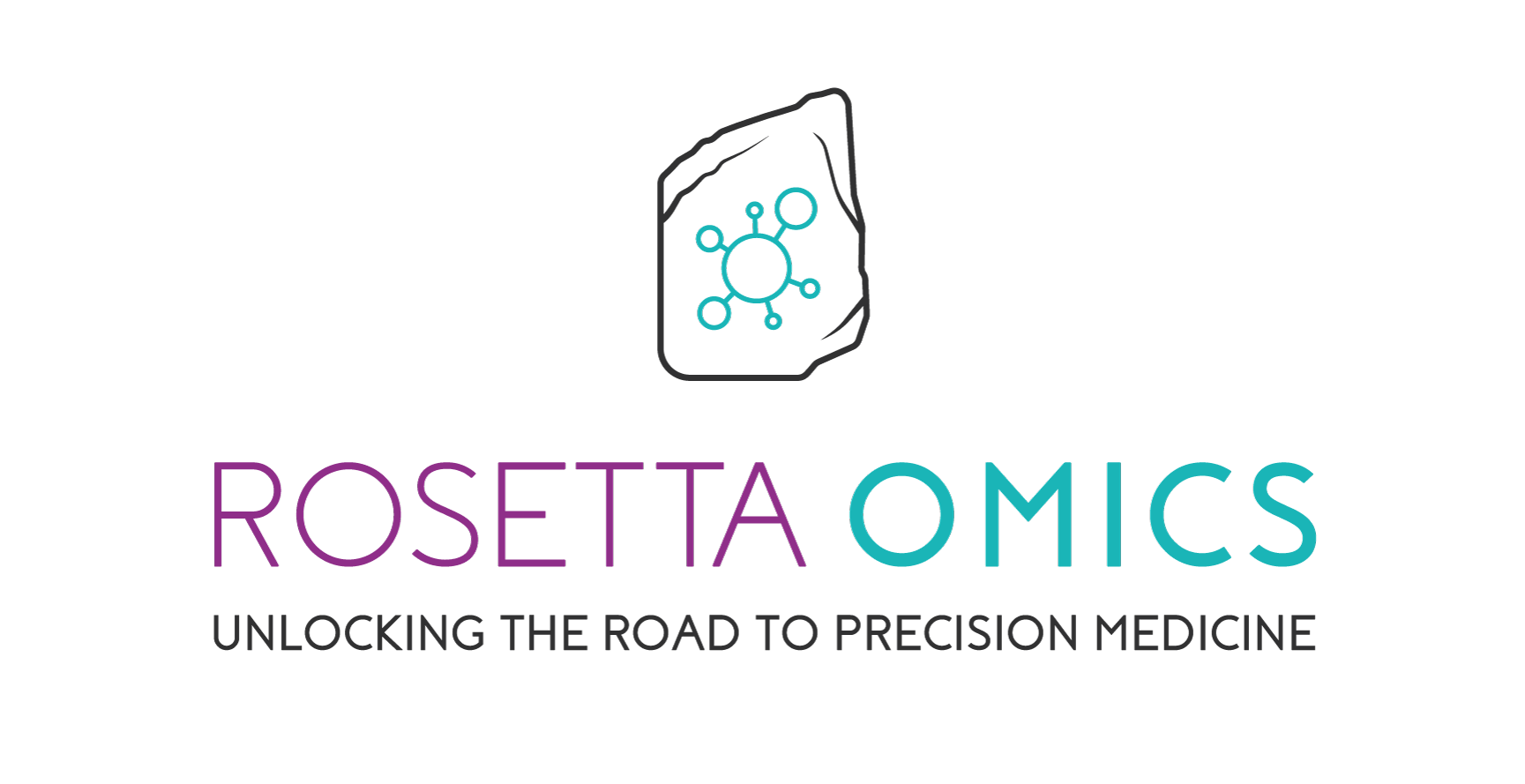BLOG
Reimagining Oncology: Wahid Awad on AI, Multiomics, Spatial Data and the Shift to Personalised Cancer Care

Wahid Awad, Founder and CEO of Rosetta Omics, joined Muhammad Younis for an insightful discussion on the future of precision oncology. He highlighted the challenges of moving beyond standard treatments and the promise of AI, multiomics, and spatial data in delivering personalised cancer care. Wahid shared how Rosetta Omics is advancing predictive models that improve outcomes and reduce costs, while addressing the hurdles to clinical adoption. He also stressed the importance of industry events like the London Biotechnology Show in driving innovation and collaboration across the biotech landscape.
#LBS: Many cancer patients receive first-line therapies that may not be the most effective for them. What do you see as the biggest challenge in making personalised treatment the standard approach?
Wahid Awad: One of the biggest challenges is the lack of comprehensive, clinically validated predictive tools that can guide treatment selection in real time. Many current approaches still rely on broad treatment guidelines rather than precise molecular insights tailored to individual patients. While multiomics data offers a deeper understanding of tumor biology, its integration into clinical decision-making remains fragmented due to inconsistent data collection, lack of actionable biomarkers, and limited AI-driven solutions for oncologists.
At Rosetta Omics, we are tackling this challenge by developing AI-powered predictive models that integrate molecular, and spatial data to provide clinically actionable insights. Our technology enables oncologists to identify the most effective therapy from the outset, reducing unnecessary treatments and improving patient outcomes. However, broader adoption will require stronger regulatory frameworks, reimbursement support, and increased physician engagement to make personalized treatment the new standard in oncology.
#LBS: AI, multiomics, and spatial data are transforming cancer treatment by improving response prediction. How do these technologies enhance precision medicine, and what are the biggest obstacles to their widespread adoption?
Wahid Awad:AI, multiomics, and spatial data are revolutionizing oncology by allowing for a much deeper and more precise understanding of each tumor’s unique biology. Multiomics integrates diverse biological data, genomic mutations, transcriptomic activity, protein expression, and even metabolic pathways providing a complete molecular fingerprint of the tumor. Spatial profiling adds another layer by showing how different cell populations interact within the tumor microenvironment, revealing drug resistance mechanisms and immune response variations that standard tests often miss.
At Rosetta Omics, we leverage AI-driven analytics to decode these complex data layers and accurately predict patient responses to specific treatments. Our approach goes beyond conventional biomarker analysis by using machine learning algorithms to identify patterns that might be invisible to traditional methods.
However, several barriers hinder widespread adoption, including data standardization, regulatory hurdles, and the need for extensive clinical validation to ensure these AI models are reliable across diverse populations. Additionally, many oncologists require training and confidence in AI-assisted decision-making, which is why Rosetta Omics is actively collaborating with leading cancer centers to integrate our technology into real-world clinical workflows.
#LBS: Personalised medicine not only improves patient outcomes but also reduces the cost of ineffective treatments. How do you see advancements in predictive models reshaping healthcare efficiency and affordability?
Wahid Awad:Precision medicine is fundamentally shifting cancer care from a reactive to a proactive model, where treatment is matched to each patient’s specific tumor profile from the outset. This eliminates trial-and-error prescribing, reduces severe side effects, and prevents unnecessary treatment costs, making healthcare more efficient and cost-effective.
At Rosetta Omics, our AI-driven predictive tests empower oncologists to select the right therapy for each patient before starting treatment, leading to:
- Fewer failed treatments and hospitalizations
- Shorter treatment cycles with more effective drugs
- Lower costs for both healthcare systems and patients
Moreover, by improving patient stratification for clinical trials, our technology helps pharmaceutical companies optimize drug development, reducing costs and increasing success rates. As precision medicine adoption grows, we anticipate a shift towards value-based healthcare models, where payers reward treatments based on their effectiveness, ultimately making cancer care more accessible and affordable.
#LBS: Despite significant research, many promising technologies struggle to transition into clinical practice. What steps are necessary to bridge the gap and ensure AI-driven precision medicine becomes a core part of oncology care?
Wahid Awad:Bridging the gap between research and clinical practice requires a multi-pronged approach:
- Robust Clinical Validation – AI-driven solutions must undergo rigorous validation in real world patient populations. Rosetta Omics is working with leading cancer centers to ensure our models are clinically tested and validated across diverse cohorts.
- Regulatory Approvals – Many AI and multiomics-based tests face lengthy regulatory processes. We are actively engaging with regulatory bodies to align our platform with evolving standards, ensuring a smoother path to clinical adoption.
- Integration with clinical workflows – AI tools must be seamlessly embedded into electronic health record (EHR) systems and oncologists’ workflows. Our technology is designed to be user-friendly, providing clear, actionable insights rather than overwhelming clinicians with complex data.
- Reimbursement and Cost Justification – Healthcare payers need evidence that precision oncology leads to cost savings. We are building health-economic models to demonstrate that our tests reduce overall treatment costs by improving response rates and reducing treatment failures.
- Physician Training and Awareness : Many oncologists still lack familiarity with AI-driven decision-support tools. Rosetta Omics is working closely with key opinion leaders (KOLs) to drive education and adoption, ensuring that AI becomes an essential part of oncology care.
By addressing these challenges, we can accelerate the adoption of AI-driven precision medicine, making personalized cancer treatment the new standard worldwide.
#LBS: Rosetta Omics aims to unlock the potential of precision medicine using multiomics, spatial data, and AI. What sets your approach apart, and how is it already making an impact in the fight against cancer?
Wahid Awad:What sets Rosetta Omics apart is our ability to go beyond single-biomarker approaches by integrating multiomics and spatial data using AI-powered analytics.
- Our proprietary platform: Analyzes multiomics, and spatial data to build a detailed molecular profile of each tumor.Predicts treatment response with high accuracy, allowing oncologists to choose the most effective therapy upfront. Identifies new drug targets and biomarkers, helping pharmaceutical companies accelerate drug discovery and patient stratification.
We are already making an impact through:
- Partnerships with top-tier cancer hospitals and research institutions to validate our models in real-world clinical settings.
- Collaborations with leading pharmaceutical companies to optimize clinical trial recruitment and improve drug efficacy predictions.
- Regulatory discussions and pilot programs aimed at integrating our AI-driven tests into oncology workflows.
By combining cutting-edge AI with deep molecular insights, Rosetta Omics is pioneering the next era of truly personalized cancer care, bringing better outcomes to patients and greater efficiency to healthcare systems.
#LBS: Industry events like the London Biotechnology Show bring together key stakeholders to shape the future of biotechnology. In your view, how do such gatherings influence innovation, collaboration, and the overall direction of the industry?
Wahid Awad:Events like the London Biotechnology Show are crucial in accelerating innovation and fostering cross-industry collaboration. They serve as a convergence point for biotech startups, pharma leaders, investors, and regulatory bodies, enabling:
- Showcasing Breakthrough Technologies – Startups like Rosetta Omics can present cutting edge AI-driven solutions, gaining exposure to industry leaders and potential partners.
- Facilitating Strategic Partnerships – Many collaborations between biotech companies, hospitals, and investors are formed at such events, helping accelerate technology adoption.
- Shaping Industry Trends and Regulations – By bringing together regulatory decision-makers, key opinion leaders, and innovators, these events help streamline the path from research to clinical practice.
For Rosetta Omics, these gatherings are an opportunity to:
- Engage with key stakeholders in oncology and precision medicine
- Present our AI-powered predictive models to investors and potential clinical partners
- Stay at the forefront of industry developments, ensuring our solutions remain aligned with the evolving healthcare landscape
By fostering collaboration and driving innovation, such industry events play a vital role in accelerating the adoption of next-generation cancer treatments.
Can we prevent cancer?

Can we prevent cancer?
A question I always receive from family, friends, and acquaintances.
I wanted to write an answer to this question but I found a ready answer at the WHO website. Please see below.
> Between 30-50% of all cancer cases are preventable.
> Prevention offers the most cost-effective long-term strategy for the control of cancer.
Risk factors of cancer:
1. Tobacco
Tobacco smoke has more than 7000 chemicals, at least 250 are known to be harmful and at least 69 are known to cause cancer. Worldwide, tobacco use is the single greatest avoidable risk factor for cancer mortality and kills more than 8 million people each year, from cancer and other diseases. Nearly 80% of the 1.1 billion smokers in the world live in low- and middle-income countries.
2. Physical inactivity, dietary factors, obesity and being overweight
Overweight and obesity are linked to many types of cancer such as oesophagus, colorectal, breast, endometrial and kidney. Regular physical activity, and maintaining a healthy body weight, and a healthy diet can risk. Excess body mass was responsible for 3.4% of cancers in 2012, including 110 000 cases of breast cancer per year.
3. Alcohol use
Alcohol use is a risk factor for many cancer types including cancer of the oral cavity, pharynx, larynx, oesophagus, liver, colorectal and breast. Risk of cancer increases with the amount of alcohol consumed. In 2016, alcohol-attributable cancers were estimated to be responsible for 400,000 deaths worldwide, predominantly among men.
4. Infections
Cancer causing infections, such as hepatitis and human papilloma virus (HPV), are responsible for up to 25% of cancer cases in low- and middle-income countries Vaccines are available for hepatitis B virus and some types of HPV, and can reduce the risk of liver and cervical cancers, respectively.
5. Environmental pollution
It has been estimated that outdoor air pollution contributed to 4.2 million premature deaths worldwide in 2016, of which 6% were lung cancer deaths. Additionally, close to 4 million people die prematurely from illness attributable to the household air pollution from cooking with solid fuels and kerosene.
6. Occupational carcinogens
It is well documented that occupational carcinogens are causally related to lung cancer, mesothelioma, and bladder cancer. For example, mesothelioma (cancer of the outer lining of the lung or chest cavity) is to a large extent caused by work-related exposure to asbestos.
7. Radiation
Exposure to all types of ionizing radiation increases the risk of various types of malignancy including leukaemia and a number of solid tumours. Risks increase when the exposure occurs at a young age and also when the exposure amount is higher. Ultraviolet (UV) radiation, and in particular solar radiation, is carcinogenic to humans, causing all major types of skin cancer, such as basal cell carcinoma (BCC), squamous cell carcinoma (SCC) and melanoma. Avoiding excessive exposure, and using sunscreen and protective clothing are effective preventive measures. UV-emitting tanning devices are now also classified as carcinogenic to humans based on their association with skin and ocular melanoma cancers.
Source: WHO
By: Wahid Awad, CEO
Why Rosetta Omics?

Why Rosetta Omics?
2022 was a year of audacious decisions
- 2022 was the end of my fruitful journey withCilcare. I was its Chief Business Officer and Board Member as I led its business department (we surpassed the R&D sales objectives of 2021 by more than 150%). Afterwards, I refused multiple six-figures C-level job offers, including a CEO position of an international VC-packed company, so I can do something that I believe in.
Building Rosetta Omics
- I took up the challenge to build a healthcare startup in driven by my personal values and responsibility to have a direct impact on patients’ lives. Especially a duty towards my late father whom I watched dying in front of me from whilst feeling desperate and hopeless for the first time in my life. He was diagnosed and passed away in less than a year.
My beloved father and cancer
- Desperate but with a great belief in his son, my father called me from Egypt and thought that I could come back home to save him. He thought that I could do that by placing him in a better hospital through my network in Egypt because of my previous political influence, or my academic affiliation as an assistant professor at Cairo University. He also thought that I could bring him some new medicine from France, the USA or the Netherlands where I studied and worked in the past 17 years.
- Unfortunately, my father was mistaken. He obviously overestimated my capabilities especially in front of this monstrous disease that kills millions of people including children every year. Sadly, he died and I could not do anything to help him or save his life.
Changing career from academia to drug development
- However, only a few weeks after my father passing, I left academia by giving up a tenure professorship position to join the industry to help develop new innovative drugs. Over the past 5 years, I have been involved in many R&D projects about drug and device development with hundreds of companies, executives, researchers, and medical doctors from all over the world.
- I will be leveraging this experience, knowledge, and network to make sure Rosetta Omics can deliver solutions that may help the millions of cancer patientswho can always use an extra help.
Executive MBA: learning and growing
- This most important and real journey that started only 11 months ago is a life-changing decision for me. I have decided to go with my heart and take the very risky and less-walked road against all the odds of economic #Recession in the world, Europe and France. This is also important as it happened during the same time that I decided to invest all my savings in an Executive MBA to learn more and grow my knowledge and skills related to business managment, finance, entrprenurship, and many more other essential subjects for a CEO.
- I also used Rosetta Omics a case study for the EMBA international project where I have four world class friends who believed in the vision from the first day Etienne Rutily Georges Kalouche Moheb KARKERA Ana María Moreno Fernández all from the healthcare sector working with me on this project. I also used it in many other course assignments to further capitalize on this amazing learning jorney. This is in addition to building a very valuable network of brilliant and supportive friends (students, professors and alumni) at ESCP Business School, whilst studying in 9 countries (France, UK, Germany, Italy, Spain, Belgium, USA, Brazil and Lebanon).
What is Rosetta’s vision and goal?

- “Our vision is to become the world leader in oncology precision medicine based on multiomics profiling and AI“.
- Our goal is to help the millions of people diagnosed with cancer every year (estimated 20 millions new cases of cancer each year).
- We will be using spatial and multiomics molecular profiling to help stratify patients by matching them with the right treatment at the right time, to increase positive responses to treatments & survival rates. We will also be helping drug developers to identify or validate new biomarkers and theraputic targets.
Reach out to partner or help!
- Contact me if you want to know more about Rosetta Omics or would like to collaborate or partnerat any level as we are all touched by cancer in our circle of family and friends.
- We are looking to partner with all potential stakeholders, including: biopharma compies, academics, hospitals etc.
By: Wahid Awad, CEO
